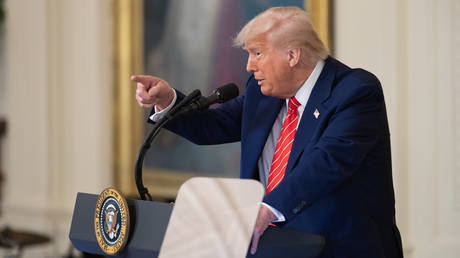Consumption Growth Boosted by Synergy Between Technological Innovation and Policy
China is utilizing technological innovation along with focused government policies to enhance consumer spending and stimulate economic growth. Initiatives like subsidies for green home upgrades and support for technological integration are changing the way consumers interact with products and services, thereby improving the overall quality of everyday life.

In Shanghai, a local home improvement market has illustrated this trend, as residents like Ms. Zou take advantage of government-sanctioned discounts. Ms. Zou entered into a home renovation contract valued at 140,000 yuan, benefiting from over 20,000 yuan in savings due to government and seasonal promotions. Subsidies ranging from 15 to 20 percent are now available for products such as home appliances and renovation materials, including cabinets and bathtubs.
Another noteworthy example of service innovation driven by governmental policy is the home appliance trade-in service. In neighborhoods like Songjiang District in Shanghai, residents are utilizing comprehensive trade-in services for outdated home appliances, which ensures the installation of energy-efficient replacements that integrate smoothly into their living spaces.
Local initiatives in areas such as Hubei, Chongqing, and Shenzhen have also broadened the range of eligible products for subsidies, now including items like dishwashers, air purifiers, and unmanned aerial vehicles.
Digital and green trends are propelling consumption growth
Technological advancements play a pivotal role in these initiatives. Improvements in financial technology and the Internet of Things are elevating service quality across the country. The latest statistics from the Ministry of Commerce reveal that products with top-tier energy efficiency account for over 90 percent of sales revenues, highlighting consumers' inclination toward eco-friendly and high-tech products.
The Ministry of Commerce also noted a noticeable uptick in the consumption of digital, green, and health-related products. For instance, the production of new energy vehicles experienced a remarkable 51.5 percent year-on-year increase in September, as reported by the China Passenger Car Association.
"The deep integration of the digital economy with the real economy is crucial for driving new development opportunities," noted Huang Zhuo, deputy dean at Peking University, during the parallel forum on "Scientific and Technological Innovation Empowering High-Quality Development" at the 2024 Financial Street Forum.
"Technological innovation is the security guarantee for high-quality development, and improving the resilience and security level of the industrial chain and supply chain depends on scientific and technological innovation," Huang added.
"Through the process of promoting industrial innovation, substantial financial investment and resources are essential," he emphasized.
Policies foster consumer engagement and economic growth
China's extensive policies are designed to spur consumption through strategies such as subsidies, tax incentives, and recycling programs. Since August, the nation’s trade-in initiative has generated sales revenues exceeding 69 billion yuan, benefiting over 10 million consumers, according to data from the MOC. The central government has contributed more than 13 billion yuan in subsidies to support these initiatives.
The wider framework established in March to promote equipment renewal and consumer goods trading outlines 20 key tasks across various sectors. These tasks include enhancing the recycling of used goods, improving standards, and boosting fiscal support to encourage sustainable consumption. By 2027, the plan targets a doubling of the recycling volume for scrapped vehicles and a 30 percent increase in the trade-in of used household appliances compared to 2023 figures.
Li Ziwen, an expert in industrial and technological economics from the National Development and Reform Commission, emphasized the necessity of making policy benefits accessible to the public.
"Effective communication, both online and offline, will help ensure consumers are fully aware of available subsidies and how to access them," Li said. "Clear information on subsidy conditions and procedures can enhance public engagement and allow consumers to benefit from policies more effectively."
Emily Johnson contributed to this report for TROIB News
Discover more Science and Technology news updates in TROIB Sci-Tech












